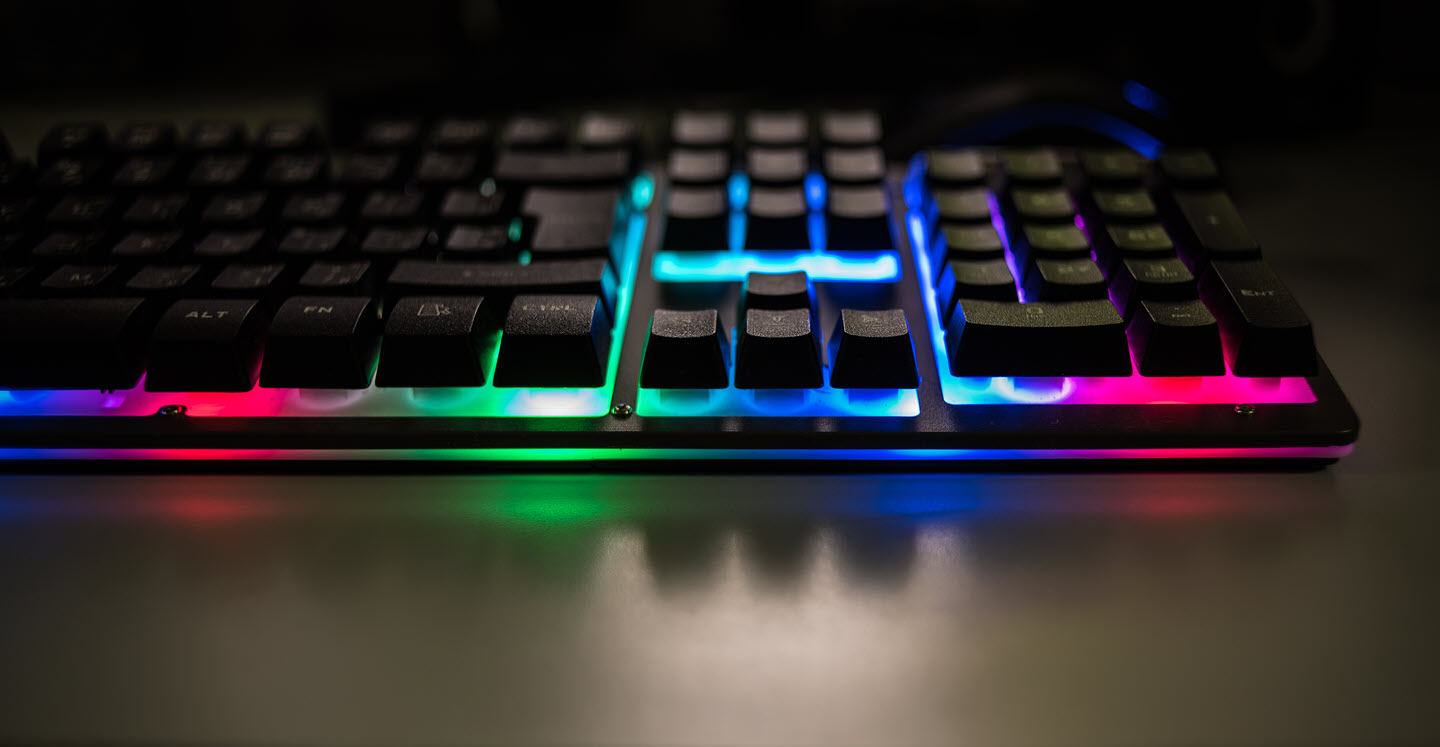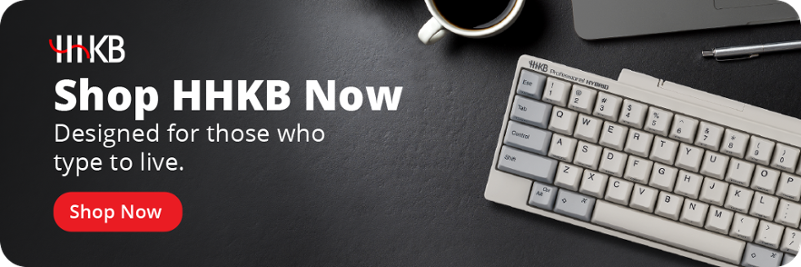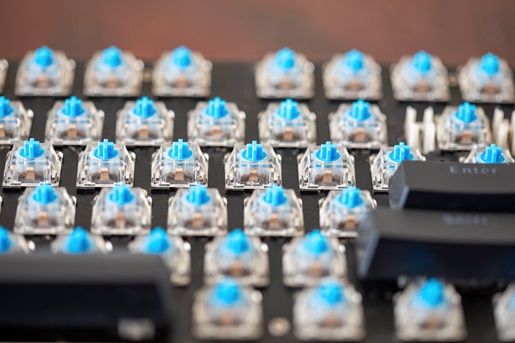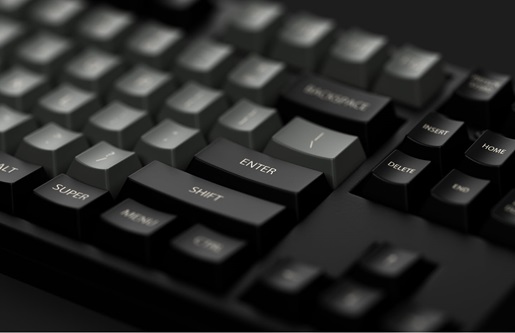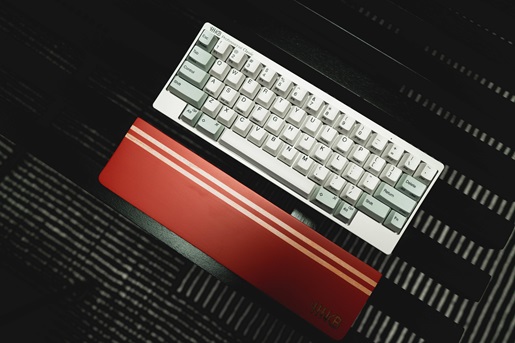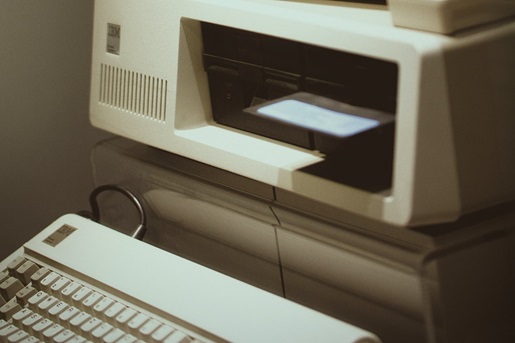Learn how to find the stealthiest keyboards and switches on the market today — and why you’d want a nearly silent peripheral
One of the best things about the world of mechanical keyboards is customizability. The space allows people to find or build a piece of personal tech that perfectly matches their individual preferences. For those who treasure tranquility, this article provides a complete guide to the best quiet mechanical keyboards and switches (in our opinion) available on the market today.
Why choose a quiet mechanical keyboard?
Mechanical keyboards are comfortable and durable, but they’re often loud. Membrane keyboards don’t make much noise, but they don’t have satisfying tactile feedback while you’re typing. They also tend to break more easily than their mechanical counterparts.
A quiet mechanical keyboard gives you the best of both worlds. These keyboards use short actuation distances and specialized dampening materials to keep the noise down to a minimum. The switches themselves are still mechanical, though, which means you can expect a first-rate typing experience and a long lifespan.
Just be aware that if you’re looking for a truly silent mechanical keyboard, it doesn’t exist. While quiet switches have come a long way in the past few years, membrane models still usually produce less noise overall. You’ll have to decide for yourself whether the tradeoffs are worthwhile.
Did You Know? The HHKB layout repositions the control key to make it easier to execute more time-saving commands without leaving the home row. Click here to learn more.
Key features to look for in a quiet mechanical keyboard
Switch type
Switches are perhaps the most important element of a quiet keyboard. Because keyboards are fully customizable and switches set the range of audibility possible for a given build, knowing which switch you want for your board is essential.
One of the most well-regarded quiet switches is the Silent Topre. This electro-capacitive switch uses a non-contact design for smooth, tactile keypresses and incorporates silencing rings — small rubber or silicone dampeners inside the switch housing — that absorb the impact when the key is pressed and released. Combined with a thicker housing and a relatively short actuation distance of 2mm, these features work together to dramatically reduce the sound of each keypress.
Other popular quiet mechanical switches include the Gateron Silent, the Cherry MX Silent, and the Matias Quiet Linear.
Keycap materials
With so many different keycaps on the market, the relationship between materials and noise can be difficult to predict. Broadly speaking, polybutylene terephthalate (PBT) keycaps are quieter than those made from acrylonitrile butadiene styrene (ABS). Polyoxymethylene (POM) and rubber keycaps don’t usually make much noise, but they’re harder to come by than PBT and ABS models. Still, with so many different keycap styles and manufacturers, these are more general observations than hard-and-fast rules. Remember that your key switch will ultimately make more (or less) noise than the keycaps you use.
Dampeners
There are a few different ways you can use dampeners to create a quiet mechanical keyboard. The easiest way is to buy a set of rubber O-rings. These inexpensive accessories fit inside mechanical keycaps and absorb some noise each time you press down. While O-rings are cheap and easy to install, they can also affect the way your switches feel.
You can also buy foam keyboard frames, either for your entire device or just for certain keys, such as the spacebar. These sheets of foam go inside your keyboard case and cut down on sound between your switches and your keycaps. Foam frames tend to soak up a lot of noise, but you may have to cut them and add screw holes to make them fit your peripheral properly.
Keyboard case build quality
While some mechanical keyboard enthusiasts swear by metal keyboard cases, plastic may actually be a better choice to keep the noise down. Metal tends to reflect and amplify sound, while plastic absorbs and dampens it.
Granted, neither metal nor plastic will sound good in a low-quality build. Keyboard cases with loose connections and lots of empty space will be noisy, regardless of the material used. If you can’t go hands-on with a keyboard before you buy it, your best bet is to stick with reputable manufacturers. Brand-name electronics are usually built well and have responsive customer service if something goes wrong.
Our recommendation: HHKB Professional Hybrid Type-S
With its unique Silent Topre switches, the HHKB Professional HYBRID Type-S is one of the quietest — if not the quietest — stock keyboards available today. Its smooth, quiet, and precise keystroke mechanics ensure this keyboard achieves a high degree of noise reduction without sacrificing an ounce of accuracy. In addition to its quietness, the keyboard’s compact size, layout, and comfort-driven ergonomic design make extended typing sessions much easier on the body. These characteristics also make the HHKB Professional HYBRID Type-S the perfect portable keyboard — quietly at home in everything from libraries to coffee shops.
Hopefully, this article has helped guide you on your search for the quiet mechanical keyboard of your dreams. While finding your perfect build is rarely easy, few things are more satisfying than typing away on a keyboard that matches your preference and workflow.
Pairing high performance with minimal noise, our HHKB lineup meets the stringent demands of coders, gamers, and hardware enthusiasts around the world. To browse this and other high-quality keyboards, check out our entire collection today.
Note: Information and external links are provided for your convenience and for educational purposes only, and should not be construed, or relied upon, as legal or financial advice. PFU America, Inc. makes no representations about the contents, features, or specifications on such third-party sites, software, and/or offerings (collectively “Third-Party Offerings”) and shall not be responsible for any loss or damage that may arise from your use of such Third-Party Offerings. Please consult with a licensed professional regarding your specific situation as regulations may be subject to change.

